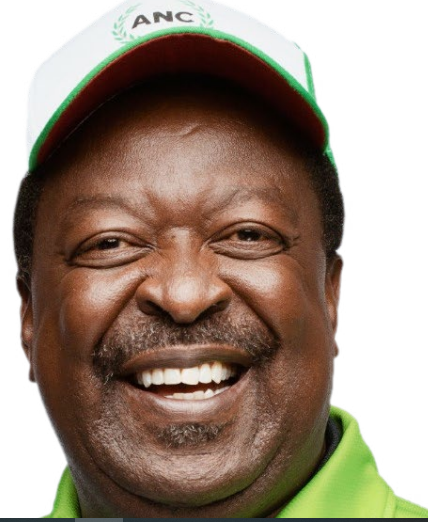Mudavadi’s political move and enactment of parties law roll the ball for coalitions

In the months before he announced an alliance with Deputy President William Ruto, Musalia Mudavadi had been working to change his profile.
He had become more assertive and angled his messaging towards the economy and reminding Kenyans that it was when he joined the Treasury that the Goldenberg scandal was stopped.
Mr Mudavadi was initially linked to the scandal that brought Kenya’s economy to its knees, but was cleared by the Commission of Inquiry appointed by Mwai Kibaki when he became President in 2003.
His critics have, however, continued to link him to the scandal, with former Gatanga MP Peter Kenneth doing so a day after Mr Mudavadi’s sensational announcement, which was hyped as so big it was going to cause an earthquake.
Mr Mudavadi’s refusal to join Raila Odinga’s side would be a significant psychological blow to the former Prime Minister’s campaign team as he was expected to be the leader of One Kenya Alliance (OKA).
OKA seemed predestined to link up with Mr Odinga, who is seen to have the support of President Uhuru Kenyatta and by extension the State, but was reported to have been put off by his history with the President and Mr Odinga.
Mr Mudavadi was reportedly angered by President Kenyatta’s turnaround before the 2013 General Election, when he was said to have been offered the presidential ticket, and was among the Opposition leaders left in the lurch when Mr Odinga left his coalition partners behind with the Handshake with President Kenyatta in 2018.
His alliance with Dr Ruto puts him amongst the candidates for running mate and significantly reduced the pressure for the Deputy President, whose options were quite narrow before. The headache of who to hand that mantle persists, though. This week, Kirinyaga Governor Anne Waiguru told Spice FM that Dr Ruto’s supporters from Central Kenya expect that he will choose a running mate from amongst them.
For Mr Odinga, the quick enactment of amendments to the Political Parties Act means that he has no basis to continue to hesitate in making his choice, and has the legal tools he deemed necessary to aid his ascent to power. The key amendment is on the creation of coalition political parties, which will enable him to have a coalition with other parties as corporate members. Mr Odinga’s previous coalition partners have in the past complained about his Orange Democratic Movement party’s refusal to share the money from the Political Parties Fund.
If he succeeds in finally convincing the OKA group to join him, he will have a more solid footing than he does now. He would be happy that Kalonzo Musyoka and Gideon Moi left Mr Mudavadi’s meeting in protest, which for him means they are still open to negotiations.
For the rest of the country, the creation of one alliance and the enactment of the new law means that coalitions will need to be in place by February 9, and that would give the clearest idea of where the paths split.

